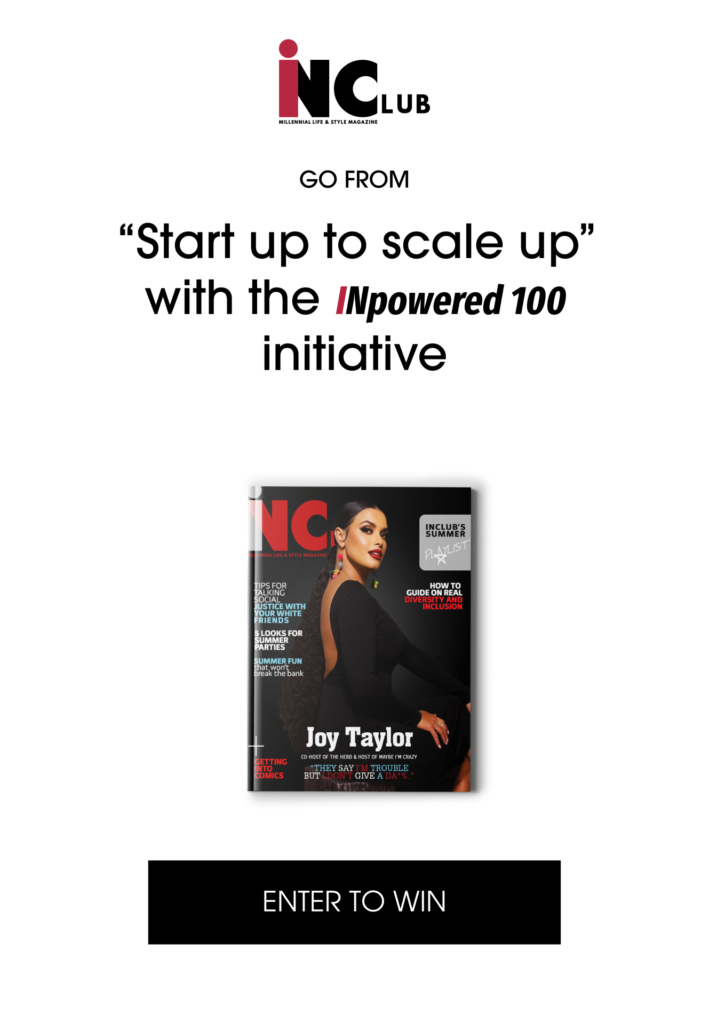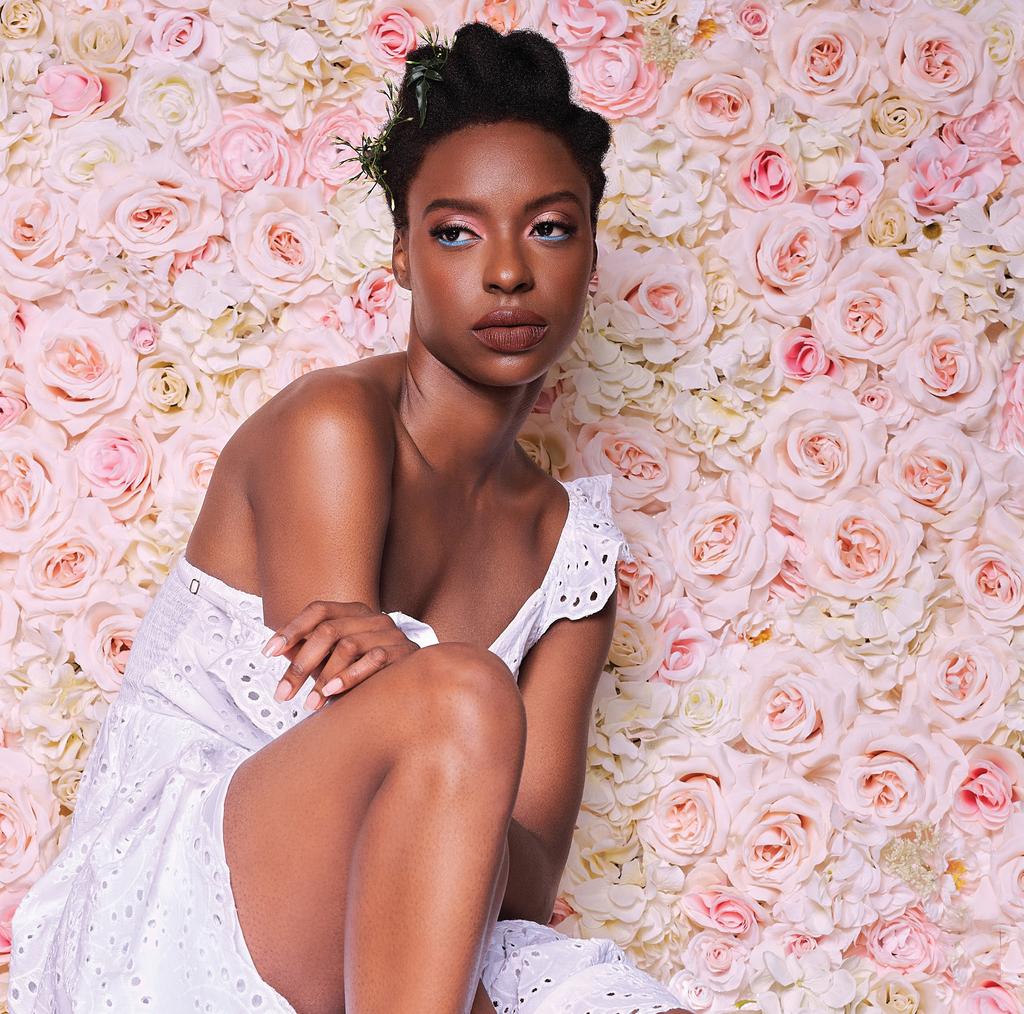Teaser Articles
Aubri Ebony
THIS GUEST THAT WE HAVE HERE EXUDES BEAUTY AND CONFIDENCE,
Model AUBRI EBONYis here to talk candidly about her living experience as a commercial model and as a rising black female star.
You have probably seen her in Essence magazine, Fenty Beauty, Sports Illustrated, and other publications with her seductive nature and her sweet smile. She can sing and act, she is a double dose of black girl magic and black young talent.
Aubri Ebony is a friend of the magazine and she is nothing but amazing. Aubri wants the public to know that she isn’t just “cookie cutter” pretty. She is beautiful and she has the brains and she has the ability to lead.
She isn’t only a model she is also a model mental health coach. Whether she’s taking sultry photos for the camera or speaking out on social inequality she does everything with sheer fearless grace.
I’m going to allow her to introduce herself. Go ahead and go to a quiet place, you are going to want to catch everything in this interview. We’re going to have a great conversation.
“I am a model counselor with that kind of means is I have a master’s in marriage, couple and family counseling that transitioned into providing mental health guidance and support to models.”– Aubri Ebony when asked about her expertise and role within the modeling industry.
I am the model counselor on top of being a model that’s been recognized by Sports Illustrated, I’ve had a really big spread in Essence magazine with Cream of Nature. And currently transitioning into the acting space as well. I just finished two of my first feature films. A cameo in “Coming to America 2” that I’m hoping made the cut and that is a really good overview about me and what I do
There’s Power In Femininity
When asked about her earliest memories of her definition of womanhood and the influences that inspired her, Aubri takes me back to a time that she remembers vividly.
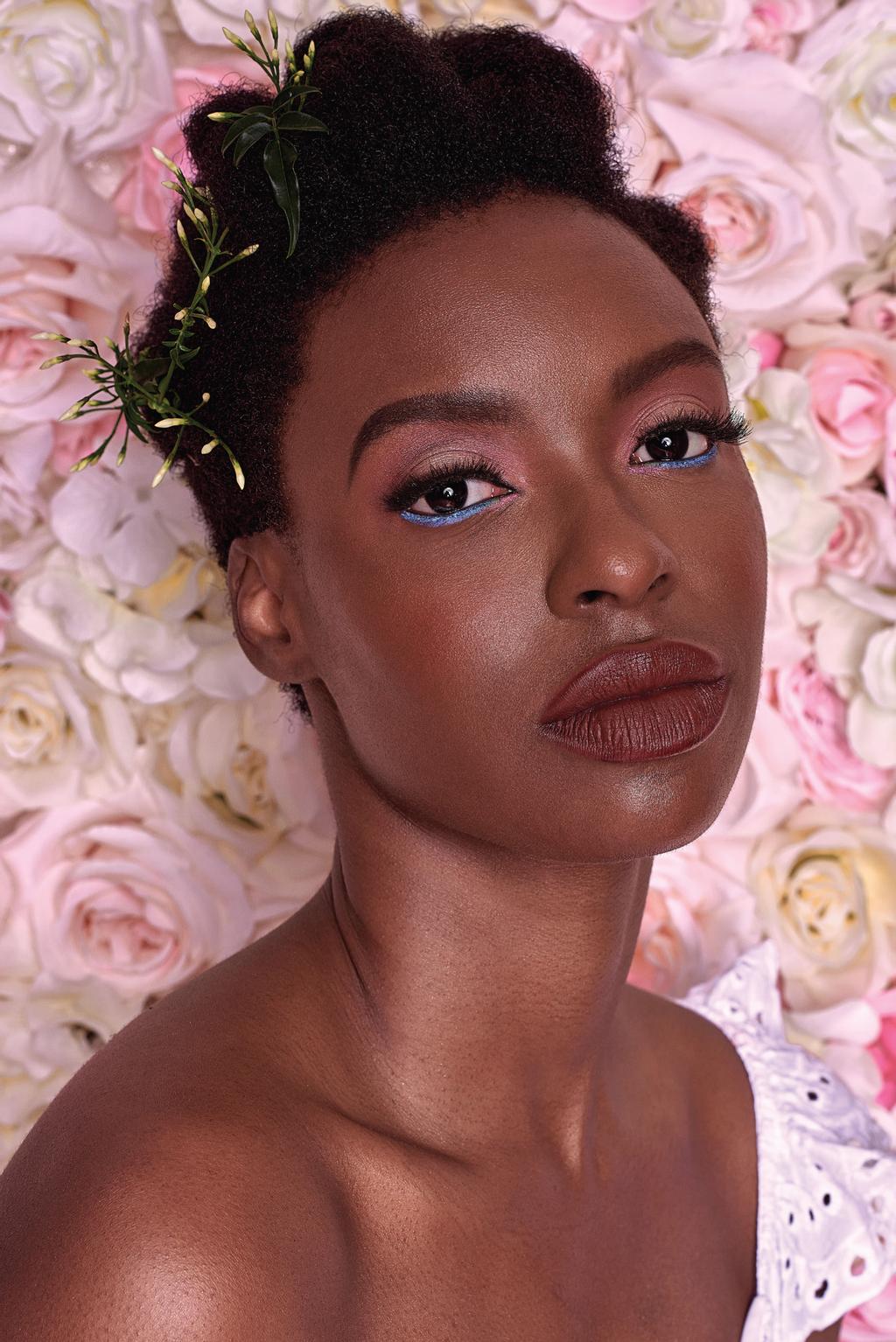
“I feel like if my femininity and my feminine energy had developed a little bit earlier or in a different space, I wouldn’t be the woman I am today.”
I’m from Chicago, born and raised on the southeast side of Chicago. It’s funny because when you’re taught to be a woman and learn femininity in certain spaces, especially in the Black community early on as a young woman, that’s not always a safe space because there’s– not just in the black community, but in communities overall, learning to develop into femininity and womanhood too early can have really strong negative impacts, you know, so I have to be honest and say that my family definitely took the femininity out of my development because femininity meant, you know, you develop earlier and men are looking at you earlier or you involve yourself in sexual activities earlier or maybe, maybe you get pregnant earlier.
I know girls that were pregnant in seventh and eighth grade, when I was in elementary school. And so my family really prided themselves on pulling me out of that–OK, you’re a girl, this is how girls do this– and it was really just about education. My femininity didn’t really develop honestly until my like, like twenties when I started modeling, because before that, it was really just about like, my dad didn’t want me to wear any nail polish in elementary school.
My prom dress had to be so cookie cutter. I couldn’t wear a two-piece bathing suit in high school at the pool. My dad was really protective of me being a female. And that’s fair because at the end of the day, the person and the woman that I’ve developed into, yes, I do a lot of sexy stuff and beautiful stuff, but I’m an educated woman at its finest and I love how I present– and I feel like if my femininity and my feminine energy had developed a little bit earlier or in a different space, I wouldn’t be the woman I am today. So that kind of covers that particular question. You know, “I feel like my femininity developed more, in my adulthood.
DR- When did you get comfortable with the idea that, “me being a woman is different”? Double standards and all from men and masculinity and things like that?
AE- I hate talking bad about anything that is the Black community because I want to uplift and support us, but we definitely sexualize our women strongly. Even hearing some of the lyrics, Saweetie says something about men have been trying to have sex with me since 15 or something like that. And that’s just so common that that space of you can’t be too sexy or too feminine. I was actually raised by my grandmother in Chicago. And, you know, I wish I could say she had a part to play on my femininity, but that’s really, it’s really all self-developed.
DR- Let’s go back, you mentioned your father being protective, right? He probably also understood that duality of like– I want her, want her to feel comfortable, bzzzut if I let her feel too comfortable, will these other doors open, right.
AE- Exactly
I continue to ask Ebony about the media influences that shaped her into the woman that she is today. Here’s what she had to say:
You know what, honestly, they have, ”they have given dark-skinned women such a hard time over the last, forever. Yeah. To the point where sometimes being dark-skinned wasn’t even looked at as being feminine. So to think of, to think of me opening up a magazine and seeing a darker tone woman and being like, oh, that’s beautiful.”
Seeing Jet magazine, Jet Beauty magazine, and Naomi Campbell– being dark-skinned–were some of my earlier influences. But you didn’t really start seeing dark-skinned women until Lupita popped out. And all of a sudden everybody’s like, oh, my God, dark-skinned girls can be beautiful. And it’s like, wait, what?
And I love the woman who played in “Queen and Slim.” She’s stunning. I love Gabrielle Union, she’s stunning. These are some of the people that I really related to. And again, more of my teen-to-twenties days. When you’re thinking about, like, younger and influences, there weren’t that many.
DR- It’s heartbreaking because we spoke with Christina Anthony who plays Aunt Denise on “Mixed-ish,”. She was saying the same thing, how it was sad for her and even to kind of come into it from TV influences for her was Eddie Murphy, because didn’t see women who looked like her.
That just goes to show you what the industry has been like, right. I can just imagine you trying to navigate all that, being protected, not really being able to express yourself. And then not really having any frame of reference of what that should look like anyway. Exactly. Exactly. So, I mean, all they can do is until you have an idea of what that looks like, is to protect. And that’s what my father did. And my grandmother, like I said– she’s a father by default, feels like, well, if I don’t know how to do this other thing I know how to protect.
AE – Right, exactly. Exactly. And I’m not mad at that.
CONNECTING THE DOTS
“I was so skinny. I didn’t develop into my womanhood until maybe 23, 24.”- Aubri Ebony
I had friends in high school. I was definitely one of the ones I was a little more picked on, kind of nerdy. I was so skinny. I didn’t develop into my womanhood until maybe 23, 24. So prior to that I was just like the super skinny kid and I was bullied and picked on quite a bit. But I still have my core group of like two or three friends that we kicked it with throughout high school. But even in high school and building friendships,
When I went to college and started doing the same thing, you realize that you just feel so much better when you have friends from different places because the energy is in the way they think. How they approach different situations is going to be so different.
“I’ve always been the person to support women.”
I think that that’s where that started for me. I’ve never been the girl that’s jealous or hating. Like, there’s no need for that. I’m all about good energy and good karma, good vibes. And I like to put that out. If sis is having a bad day, you’re beautiful. Whatever you’ve got going on, listen, you’re going to get through this that’s what I want to be and what I aspire to be.
I think it’s just developed over meeting amazing people and traveling and having conversations with people who have less than. And it’s not even about the monetary. It’s really like being appreciative and being able to make connections no matter what the circumstances are so
DR- Your industry is fickle, right? I don’t think you guys get a lot of credit. That’s why I really enjoy interviewing Meghan. And the way we–we were really intentional about that, like Meghan is super amazing, right?
AE-I love her.
DR- We had her folded clothes, right. And it was the intentionality behind it. It was just like, yo, she’s so much more than that, and that doesn’t define her.
You guys are literally in this industry, you have to be the right look, right this, whatever right– weight, complexion, right timing for the right complexion, all this nonsense, right. And it could create this contention.
Have you ever experienced that narrative of women not being able to get along and if so, if that has been your experience, what do you, what do you say to that notion, how have you combatted that I guess.
AE- You know what, being a dark-skinned woman and navigating the industry, it’s tough, right? Some dark-skinned women, models, influencers feel like if they connect with you and network with you, then you are taking jobs from them because brands have quotas, they have to meet.
Once they’ve met their quota, you’re not necessarily needed anymore. So sometimes it can get competitive.
“Once I feel like a person is in a competitive space or a negative space where we can’t form a genuine connection based on opportunities, then I just have to let that be what it is and not try to dive into that anymore.”
I actually met Megan in LA last year and she was great. “And I love meeting another dark-skinned girl who supports, uplifts, loves and has good vibes. You know, that’s what it’s about.”
“It’s really just about finding people who are on the same wave length as you.”
I had seen Meghan on socials at some point, and you know, we’re all about numbers and things like that. But she’s not the numbers, she’s not the social media numbers, she’s a real person. And that’s what I try to seek out when I’m making friends or networking throughout the modeling space, especially as it pertains to dark-skinned women, because we need to uplift and support each other.
It’s not about, OK, X, Y, Z brand only needs two Black girls, and you don’t want to tell me about this because it might take away from you– if that’s how you operate your space, there’s no room for me because if I see something and I share it and you get that, that’s for you, not for me. That opportunity was meant for you. And that’s OK. And a lot of people don’t think like that. It’s really just about finding people who are on the same wavelength as you.
DR-The fact that it’s really specific to Black women. I really take umbrage with that right like. I don’t think that’s true, so I do think it’s important to hear even those experiences, like you said, what you had with Megan and you guys are in the same industry, right? You guys, from a particular eye might even meet the same quotas for certain jobs, right. For you to be able to still want her to win and things like that. I think to me, that’s the narrative. That’s what I see.
AE- I’m rooting for everybody Black.
Aubri opens up about her experience with gender discrimination;
Based on me being a woman, hmm. You mentioned something earlier about women being put on the back burner. I think in this industry, it’s more along the lines of like as a woman, no matter what color in this industry, models are to be seen and not heard kind of vibe. You know, they don’t really care. We’re now in the space where people care about what you do outside of modeling.
But for the most part;
“It’s like, be quiet, you don’t have an opinion, stand there, be pretty, that’s what you do. And that kind of hurt, you know, because I have such a personality and I have such thoughts and, and character that for somebody to kind of dim that for their own purpose of their comfort isn’t there. And they feel like women don’t always have something right to say, or maybe we’re speaking through emotions on our periods or whatever the case may be. I don’t like I don’t like the idea of, I’m just a face and that the man is the brains behind the industry. And that’s not the case at all.”
“Women bring so much to the table, we develop this industry. “
People don’t give us credit because the males are the ones that are kind of orchestrating a lot of the stuff.
A lot of the guys are clients or are CEOs of these companies that do the casting. But I think, I think that for me, it’s where it kind of gets tricky of like, OK, you’re a model, you are to be seen and not heard as a female model. The guys kind of have a little more leeway to “Kiki” and grow it up. But girls are supposed to be a little more like you fit in this bubble, and I don’t. I’m not really a fan of that. I think that that’s the strongest space of I guess discrimination or bias or different treatment.
Aubri continues;
It’s crazy because people look at my page and they may see or think a certain thing, but a lot of people don’t give me a lot of opportunities, you know, I don’t know why. I don’t know what the hang-up is. But a lot of people see me and pass on me for whatever their personal reasons are. And so when you guys reached out, I was like, wow, this is a chance for me to tell my story.
Somebody actually cares about my story. I’m not just somebody that was cast or maybe not cast or looked over. This is somebody who cares about what I have to say because I’ve been trying and doing what I do for a while.
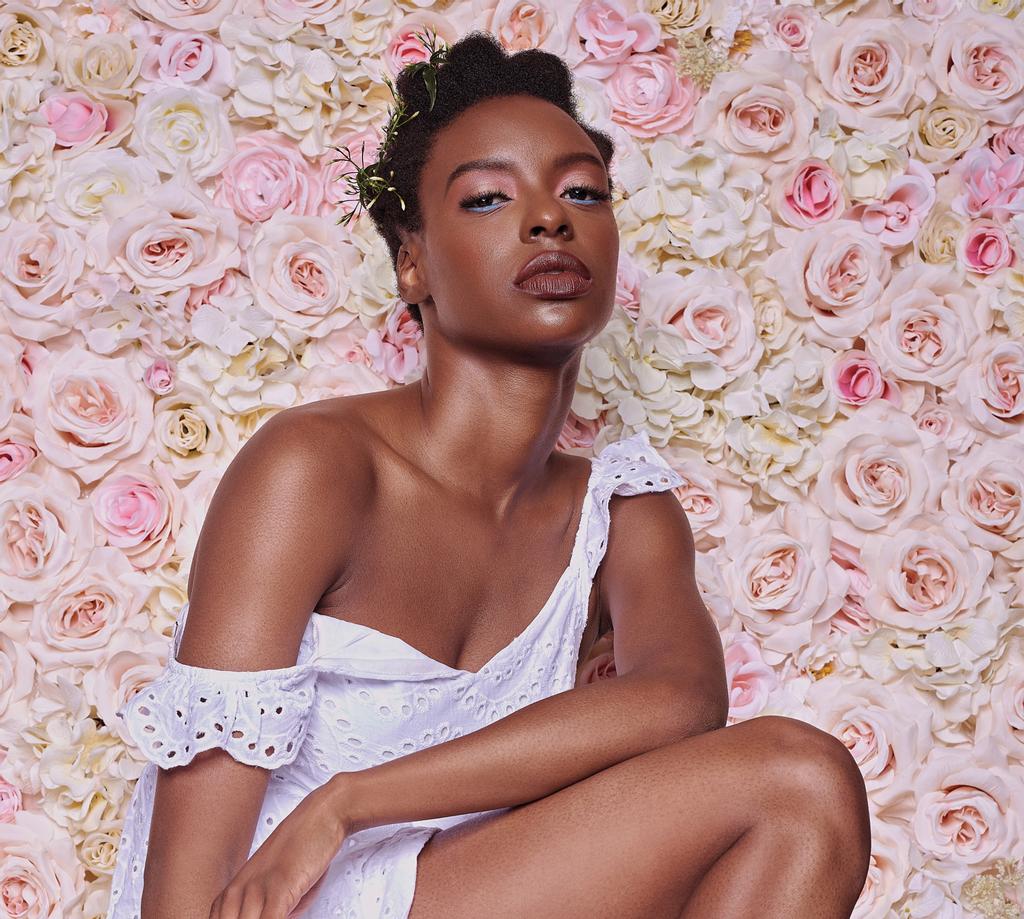
“I love for people to see the impact I have on the community. Even if it’s not about that, I love the opportunity of being given the opportunity to say what I want to say.”
DR- Talk to me about your earliest rejection. You can recall how you handled it in the advice you give for handling rejection now.
AE- I want to give two different things. I’m going to this is where the monocles develop because I realize how this industry is impacting my self-esteem, my confidence, my self-image. There was a time in Florida where I tried to do a kidney competition, so I gave him a little Cooper kidney. I’m already late at night and I go to the location and they tell me that no blacks are allowed. And I was like, oh, OK. And then you kind of get a little more racial in that space. But it’s still the idea of being denied an opportunity for whatever reason or just some kind of negligence, which is just for clarity.
This wasn’t in the 60s, so I just went, oh, no, no, no, this way. You’re talking 2015 when they said that and, you know, that kind of put me in a space. And then I think the second one was when I was working on a project for someone that a lot of people know. I was filming their title sequence for a TV show and I had just cut my hair in the back, it was kind of tapered. And I work out some pretty muscle tone. And one of the directors when we were shooting because I had to have my back facing the camera, he was like, well, how do we know that that’s a woman. Basically saying that me, as a dark-skinned woman and having a shorter haircut, is not feminine. You know, you take the stuff and you have to have one, have a good sense of self, right.
“You have to be confident in yourself. You have to believe in yourself. You have to love yourself. If you don’t have those things, then navigating through this industry, it’s going to be tough for you because you’re going to have people tell you things left and right that are not positive, that are not healthy, that are not that are not they don’t feel good.”
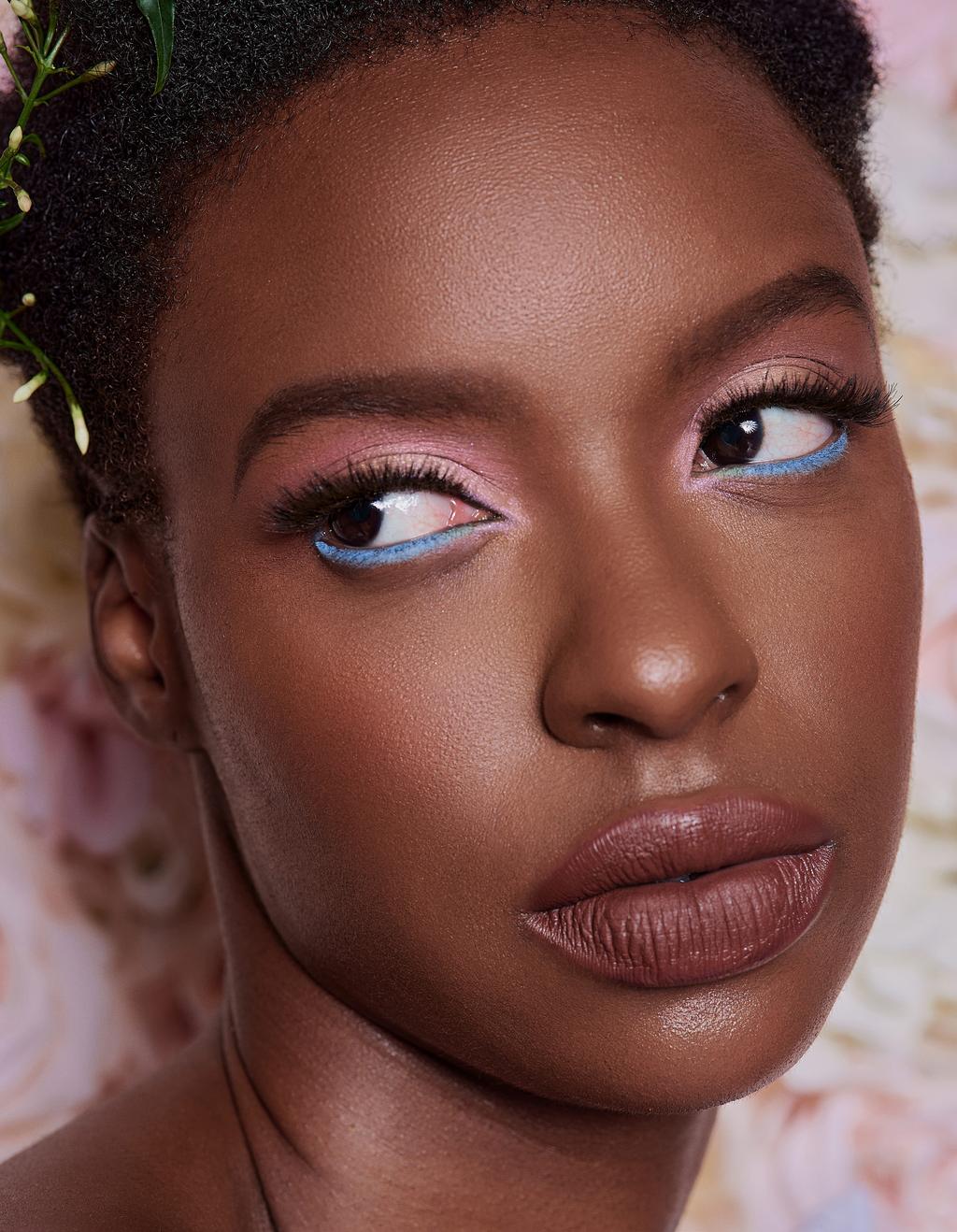
Aubri reflects;
“And you have to have it in yourself to do that grounding, to do that stuff or to do that, you know, that confidence building, to have a play list of things that make you feel good if you come from a casting and it’s bad or you have a healthy support system to be able to if you have a bad audition or negative experience, call that person that you think that you have a safe space with and process those emotions with.”
That’s kind of where the model really developed because these things we don’t always have. I think that’s kind of how it navigated, really, just having those support systems, having some coping strategies, like a playlist that can bring you in a positive mood and having that confidence and self-image like positive views, that that’s what’s going to help you get through those tough moments.
When asked to give me a phrase or a word that encapsulates her unique experience of being a woman Aubri exhales.
You know, when to use the word earth, I want to use the word, because being a woman is to create life, being a woman is to nurture. And that is what the earth does. It creates life.
It nurtures the beings that are on the planet.
“My brain sees so many images of black women and how our hair resembles what trees look like naturally, and how I talk about my skin as the complexion of I don’t want to say dirt, but literally the earth, the ground.”
You hear it like my smile is the clouds, you know, and that I feel like being a woman, especially a black woman. And I think that’s the best way to describe it.

